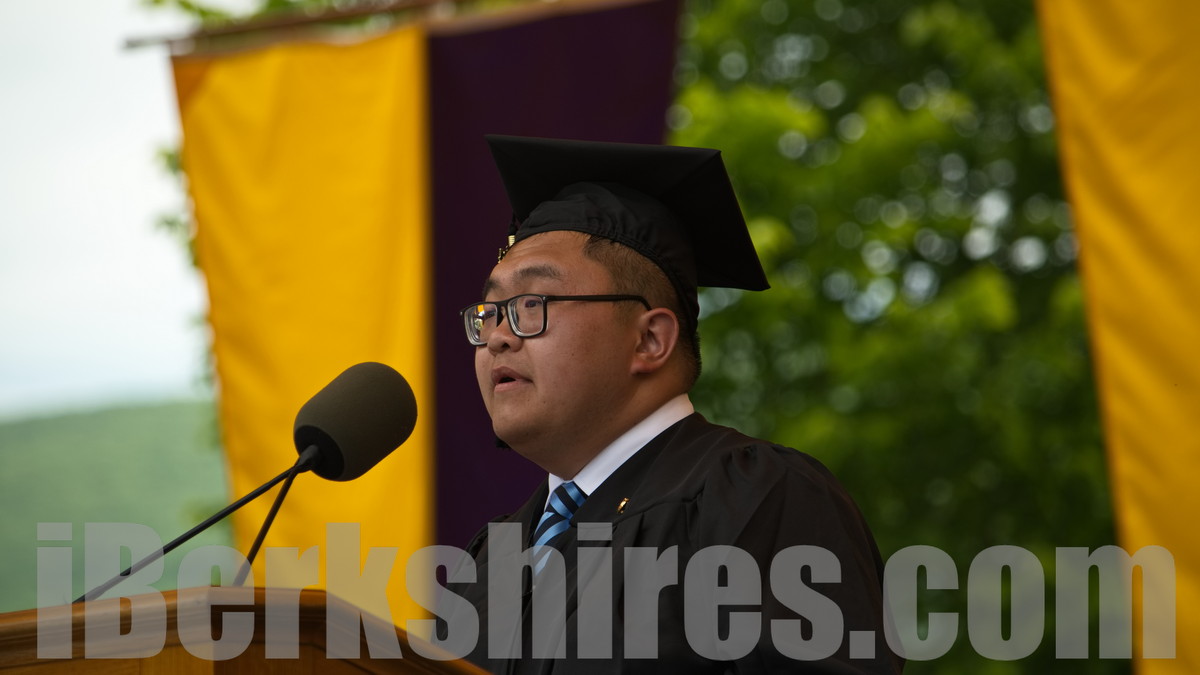Letter: Town Meeting Vote: 'Bend The Arc Toward Racial Justice'
 |
To the Wditor:
Williamstown Can't Wait: Vote To Bend The Arc Toward Racial Justice
Dr. Martin Luther King Jr. directed "Why We Can't Wait" to people he referred to as being of "genuine good will" — white clergy and town leaders of the 1960s who opposed civil disobedience as a necessary and urgent black civil rights strategy. Here in Williamstown, there may be similar people of "genuine good will" who don't see the importance of efforts to further the rights of marginalized peoples by supporting the citizen's petition for the town to affirm the "Not in our County (NIOC) Pledge." This pledge is a statement of commitment to bring forward instances of experienced exclusion, hate, bigotry, intolerance, and bullying.
On Aug. 18, Williamstown residents will have the opportunity to vote on the NIOC pledge. A vote for this pledge is an acknowledgement, a collective addressing, and a commitment to inclusiveness, tolerance and respect for all — and is one way to reverse the very real wrongs and historical instances of ugliness in the Village Beautiful.
I write to tell you as a Black resident of Williamstown with a century or more of family history here "why we can't we wait" to affirm the "Not in our County" pledge and to assert collectively that our town is one where people of all races, colors, ethnicities, creeds, sexual orientations and expressions, and abilities are welcome and part of who we are. We need to say it and commit to action by affirming it. It is no longer enough to silently affirm such values. It is necessary to vote with our feet and thus, say we commit to it loudly and proudly.
Abstaining from voting on this pledge, while seemingly innocuous, is really a vote against the values this pledge articulates. And such seemingly innocuous abstention actually has a pernicious history in the U.S. particularly during two critically important periods in which the lives and human and civil rights of persons of color were at stake. These two periods were 1863-1896 and 1936-1969, two of the most anti-Black,violent periods in our history as a nation. During the period of Reconstruction and the years of the civil rights struggle, most white people refused to stand for the rights of people of color simply by abstaining from intervention. Abstention from action and silence results in de facto complicity with acts and structures of oppression so subtle as to go undetected by the average white person, who may intend no harm, but who unwittingly supports the status quo that continues an ugly history of race in our town. I want to urge all residents to understand how the "Not in our County" citizen's petition and pledge is a step at bending the arc of our local history toward racial justice.
My formerly enslaved Black ancestors once found refuge in Williamstown from the late colonial period of the 18th century until just after the Civil War. During this period, Williamstown's leaders were actively engaged in ridding the town of Black residents. So many formerly enslaved Black people lived in White Oaks that it was first known, sad to say, as "Nigger Hill" with its many "shanties" on Broad Brook until by way of the Trojan horse of the White Oaks church mission blacks and natives were dispossessed of this land and exiled. Intolerant of their "heathen" and "uncivilized" Black way of life, a town leader of "genuine good will" named Albert Hopkins by his death in 1872 had successfully purged the area of Black people. Williamstown's residents failed to intervene despite the promise and pledge of the Emancipation Proclamation.
My great-grandfather, Harry Logan Sr., a descendant of these formerly enslaved people thus exiled from Williamstown, would land in Pittsfield but then return to Williamstown when he found work at Williams College. How he would have loved to have such a pledge of intervention from exclusion because it took two decades to find a lender and two white males to co-sign a loan before he could purchase a home in Williamstown. This period was when Black people like my grandfather sacrificed their lives for this nation and then come back home to Williamstown to bigotry and hatred. Williamstown leaders chose to abstain from intervention when William Harry Thurber of North Adams harkened back to the colonial past and penned a whites-only restrictive covenant and then called it Colonial Village. Did anyone protest this in Williamstown, or did anyone cast a protest vote in town government?
As a Black descendent of the enslaved, dispossessed, and exiled, I wonder if there were any white people who protested against or intervened against Albert Hopkins' extermination of this community in White Oaks. Grace Greylock Niles says this area was "crowded with Negro families" for 100 years before the White Oaks Church mission. Did anyone dare to cast a protest vote as a pledge against this anti-Black racially motivated violence in our Williamstown history? This is why we can't wait for those fixated on a colonial past or those leaders who chose to abstain instead of affirm that our ugliness needs to change now.
Williamstown, on Aug. 18, I ask you to lean into shame for this town meeting. Remember my exiled Black ancestors and my excluded great-grandfather as your Black neighbor. I ask you to cast a vote in favor of the NIOC pledge because this is no time to abstain. It is the only vote that acknowledges this painful history, addresses it as a community, and commits to action leadership. It acknowledges and recognizes the historic harm to my ancestors and all marginalized communities. It makes a commitment to intervene; it refuses to abstain in complicity; and it courageously works toward bending the arc of history closer and closer to racial justice.
Bilal Ansari
Williamstown, Mass.
Tags: diversity, racism, town meeting 2020,
















